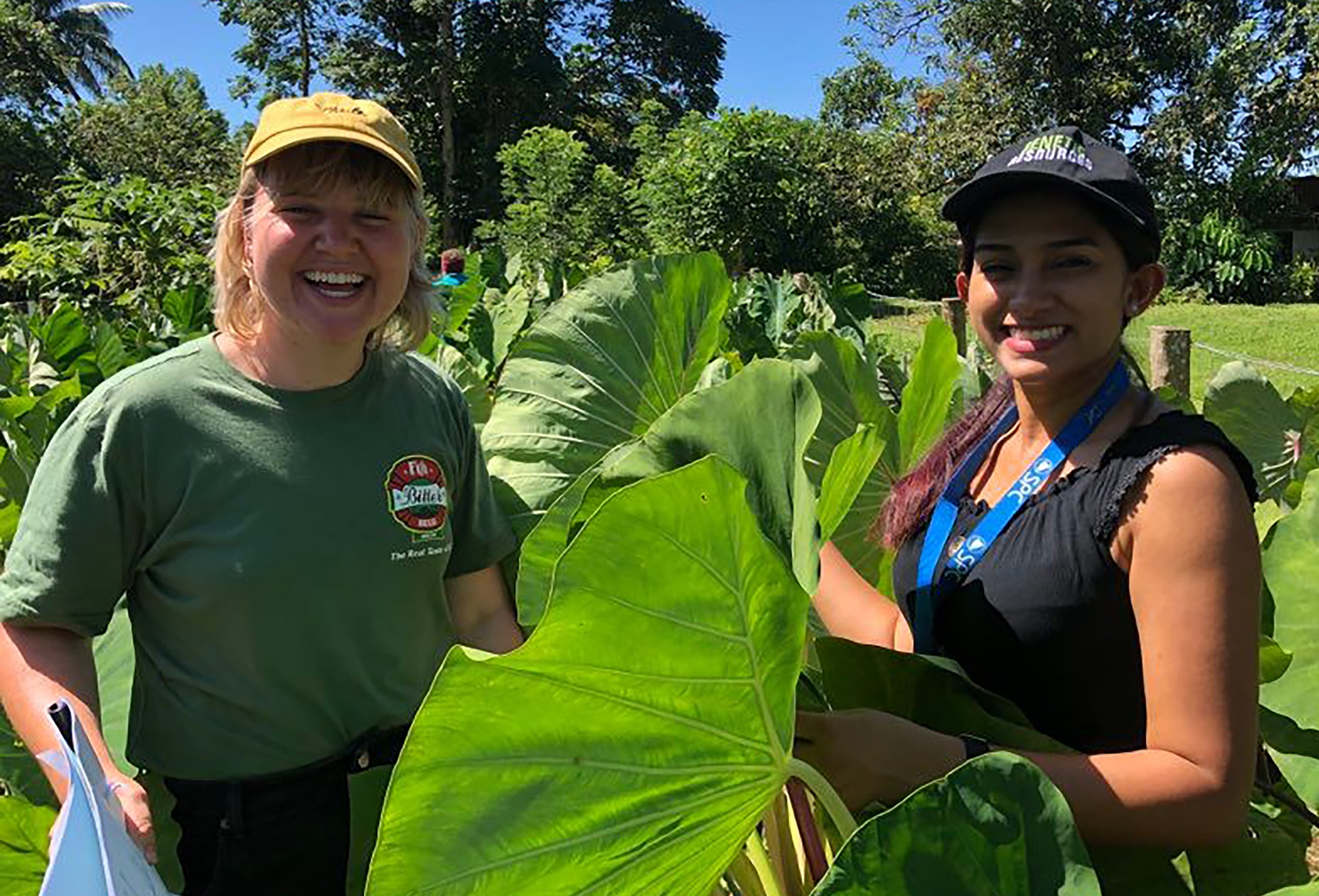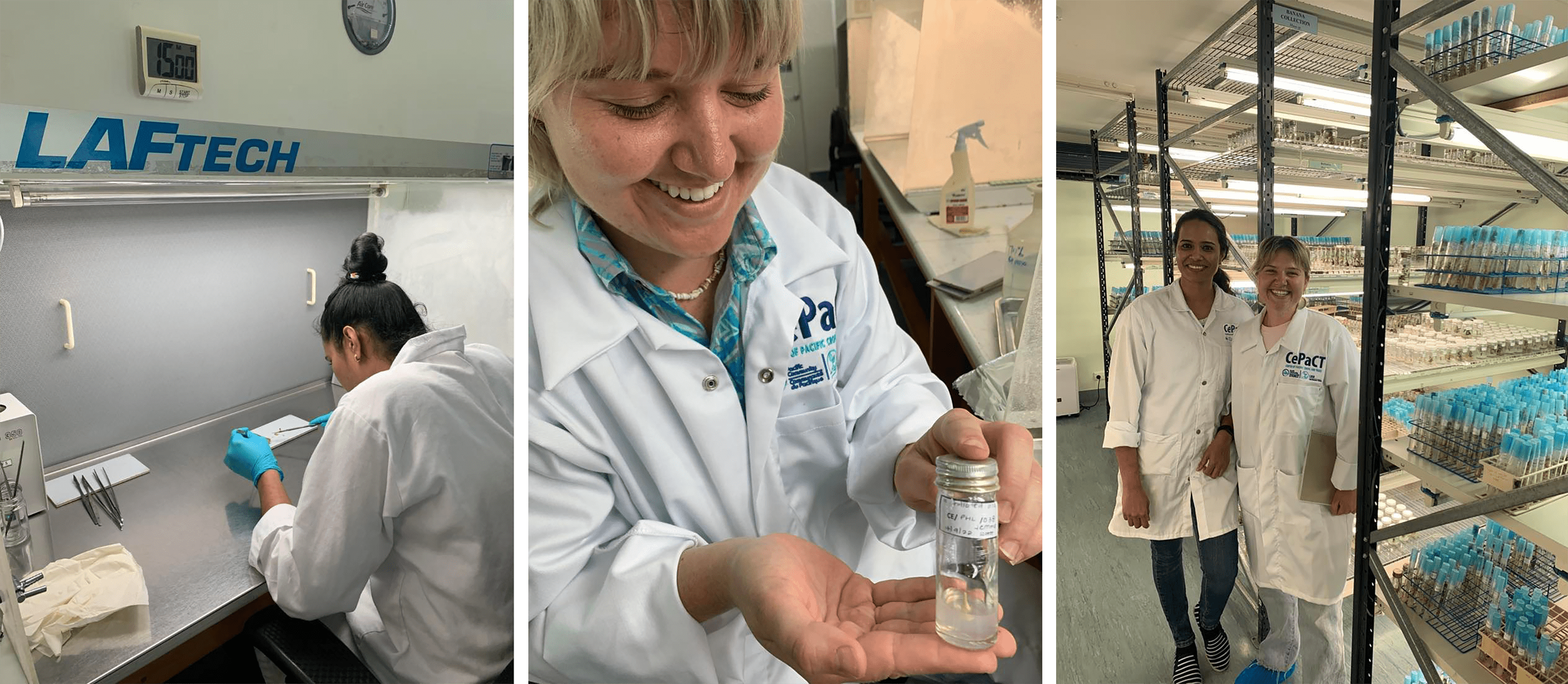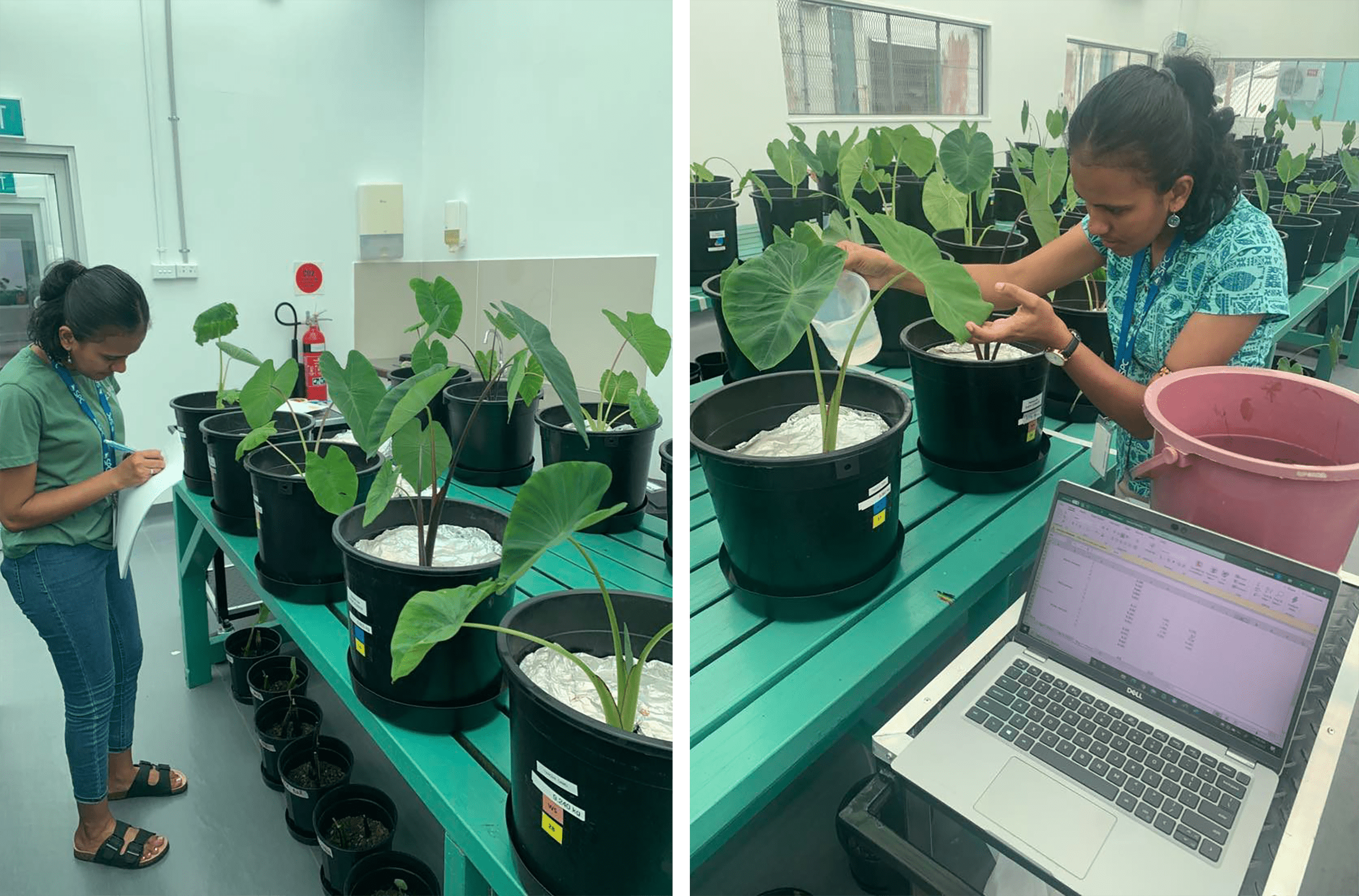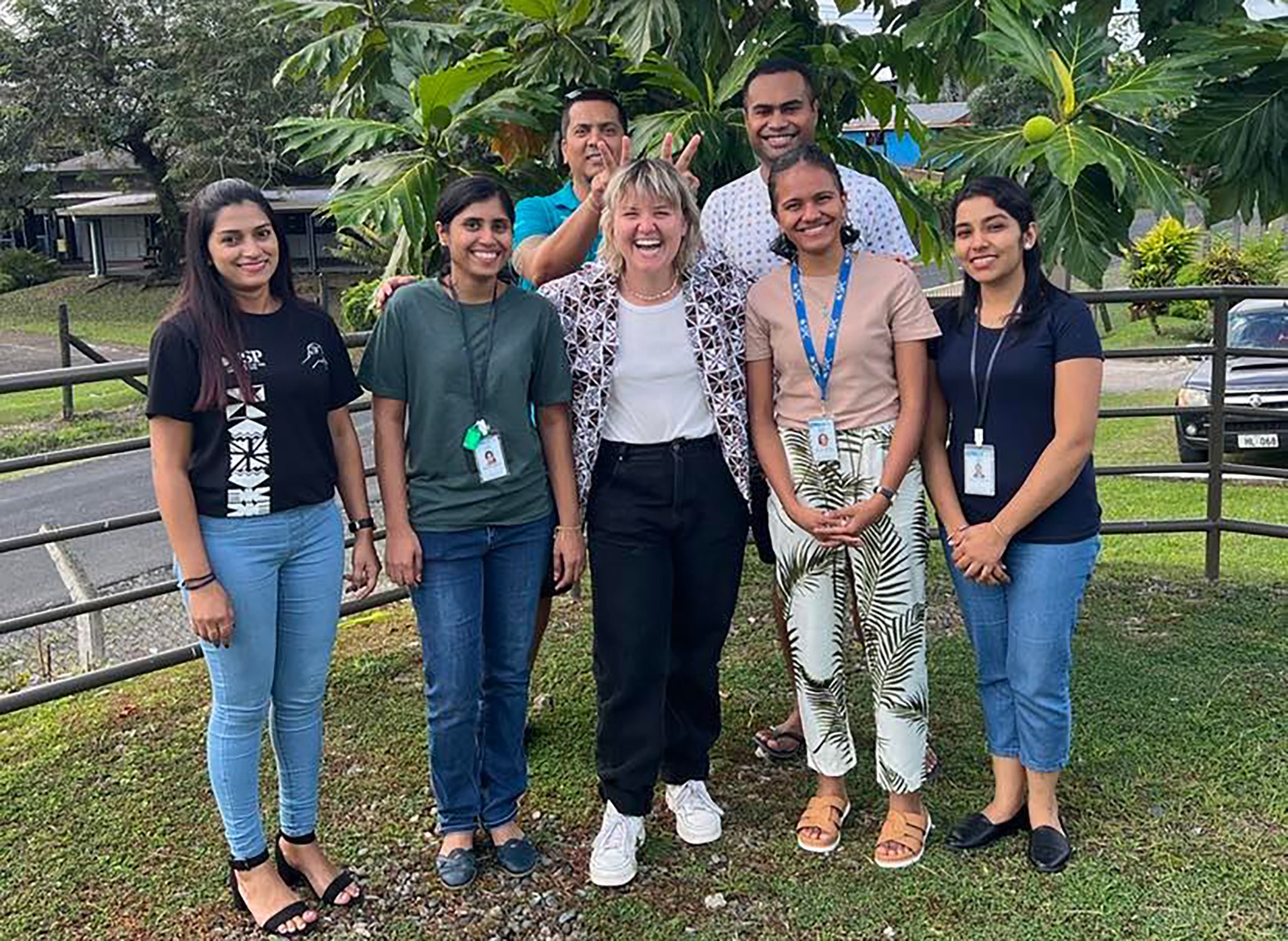

From orphan to staple – Taro in the Pacific
March 27, 2023

One way the Crawford Fund supports and encourages the next generation of Australians in study, careers and volunteering in international agricultural research is through our highly sought after Student Awards, funded by our State and Territory Committees and made possible by organisations including ACIAR, international centres, Australian and overseas universities and NGOs.
In 2022, we announced 14 tertiary students had won awards to gain international agricultural research experience and expertise. With the resumption of global travel, The Crawford Fund is excited to see many of the young NextGen Student Awardees travelling overseas to undertake projects. Jemma Restall, a PhD student from the University of Queensland, recently completed her student award research in Fiji and shares her experience below.
And remember, our 2023 student awards are now open! Applications close in May 2023.
The Crawford Fund Student Award enabled Jemma Restall from the University of Queensland to visit Suva, Fiji for a one month stay at the Centre for Pacific Crops and Trees (CePaCT) within The Pacific Community (SPC).
CePaCT aims to strengthen the resilience of food and nutritional security against the impacts of climate change through the development of technology and technical advisory support services.

“The Crawford Student Award for 2022 allowed me to assist researchers within The Pacific Community to validate a method for screening taro for drought tolerance,” said Jemma.
Specifically, Jemma’s project involved:
- optimising the protocol around drought screening
- training researchers around phenotyping taro under drought
- setting up a plant imaging and processing system (PhenoCams) to capture plants under drought stress, and
- improving the protocol around taro DNA extraction to enrich the quality of results obtained from lines of interest sent for genomic sequencing.
There has been increasing attention highlighting that Pacific Island nations are among the most vulnerable to climate change, with contrasting extreme weather events such as drought and saltwater inundation of farmland, increasing in frequency. The use of drought tolerant crops in production systems is one approach that would allow countries to continue growing their own food and maintain self-sufficiency.
According to Jemma, many crops relied on for regional food security in the Pacific are considered orphan (or minor) crops elsewhere around the word – including taro (Colocasia esculenta). It is a staple food source with tremendous cultural significance, but its ability to continue to be grown into the future is reliant upon independent cultivars, that are tolerant to abiotic stress.

The corm (underground root), leaves and stalks of the taro plant are eaten for their high carbohydrate, fibre, protein, vitamin & mineral content. Considered a prestige crop, taro has been the plant of choice for traditional feasts, gifts and fulfilling social obligations for centuries in many Pacific Island communities.
CePaCT holds the Regional Germplasm Centre, which conserves the genetic resources of the region’s staple crops and it houses the world’s largest collection of taro diversity – over 1000 accessions.
“A major research objective of my trip was to optimise the time and labour-intensive drought screening protocol that was being used. With the help of Dr Millicent Smith and previous studies, I was able to deliver a new protocol for the team that drastically reduced the workload and strain on the bodies of researchers. These changes led to researchers having a greater than 50% decrease in their workload,” said Jemma.
Further, the protocol was improved to ensure plants receiving a ‘drought treatment’ now receive a watering rate similar to that of drought conditions (20% field capacity) to enable the trial to run for a longer period of time to investigate the effect of prolonged drought periods on taro.
Jemma’s in-person training of researchers was enhanced by the creation of step-by-step instructional documents for future reference.

While in Fiji, Jemma also set up a PhenoCam system to record images of the drought trials undertaken. These images will later be remotely analysed once a processing pipeline is optimised at UQ (to be completed as part of her PhD in 2023). Once optimised, the hope is this PhenoCam network will be used for automated plant phenotyping.
“The final research objective was working to optimise the DNA extraction method for taro. DNA extractions were trialled on site at CePaCT and some amendments were suggested, however I aim to further optimise the protocol. Once finalised the protocol will be made available to CePaCT and other Pacific taro researchers,” said Jemma.
“I was also able to assist researchers in developing their skillset and confidence in carrying out DNA and RNA extractions, as well as running polymerase chain reactions (PCR).”
“Gaining experience with general cultivation and maintenance of taro greatly improved my skillset,” she said.
“One of the biggest opportunities this award granted me was the ability to build a professional and personal partnership with researchers at CePaCT. In my view, this trip has cemented working relationships between researchers at The University of Queensland and The Pacific Community, and further enhanced Queensland’s reputation as a hub of excellence in tropical agriculture and good regional neighbour.”
“I’m extremely grateful to all staff at CePaCT for so warmly inviting me into their team. I would like to thank my supervisory team and colleagues at UQ and the Crawford Fund for making this whole experience possible.” Jemma concluded.




